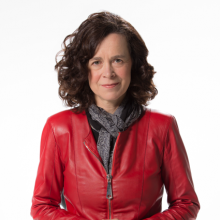This website uses cookies so that we can provide you with the best user experience possible. Cookie information is stored in your browser and performs functions such as recognising you when you return to our website and helping our team to understand which sections of the website you find most interesting and useful.
August 7, 2020
Leadership Towards A Reimagined Capitalism
 The most popular course at Harvard Business School has for years allegedly been one entitled “Reimagining Capitalism.” Rebecca Henderson leads in teaching that course and she’s just released a book on the topic: “Reimagining Capitalism in a World on Fire.” It seems an expression of a building wave of reappraising capitalism in mainstream institutions that began to crest last summer as global CEOs reacted publicly to a geo-political context reshaped by the rise of anti-globalist nativism globally. They were also encouraged by a distinct global movement that highlight the science that makes clear we are in a “climate emergency.” Now the global pandemic that experts have long warned about is reshaping our global economy and CEOs and central bankers are now also committing to, specifically, #BuildBackBetter. So, Henderson’s timing is uncanny.
The most popular course at Harvard Business School has for years allegedly been one entitled “Reimagining Capitalism.” Rebecca Henderson leads in teaching that course and she’s just released a book on the topic: “Reimagining Capitalism in a World on Fire.” It seems an expression of a building wave of reappraising capitalism in mainstream institutions that began to crest last summer as global CEOs reacted publicly to a geo-political context reshaped by the rise of anti-globalist nativism globally. They were also encouraged by a distinct global movement that highlight the science that makes clear we are in a “climate emergency.” Now the global pandemic that experts have long warned about is reshaping our global economy and CEOs and central bankers are now also committing to, specifically, #BuildBackBetter. So, Henderson’s timing is uncanny.
Last August, 181 CEOs of America’s largest companies, led by JP Morgan’s Jamie Dimon, signed a letter purporting to re-state “The Purpose of The Corporation.” The sponsoring Business Roundtable took an entire page of the New York Times to share this letter, which reversed a 1997 Business Roundtable statement about the primacy of shareholder value. This new statement of purpose made clear that corporations must recognize their purpose also includes creating value for customers, employees, suppliers, as well as host communities.
CEOs recognizing the importance – and even their need – to create value for customers, employees, suppliers, and host communities should not be news. But the Business Roundtable’s restatement of the Purpose of the Corporation does appear to reflect a meaningful move among top CEOs towards the multi-stakeholder capitalism that has for decades been at the heart of the field of Corporate Sustainability and reflected in relevant global standard setters such as the Global Reporting Initiative (GRI) and the Dow Jones Sustainability Index (DJSI). (See Bob Massie’s “Welcome to the ESG Evolution” in Institutional Investor for a cogent history of the move towards a more sustainable capitalism).
The World Economic Forum (WEF) that meets in Davos each winter was founded originally as the European Management Conference and its founder Klaus Schwab has advocated for Multi-stakeholder Capitalism since the first Davos Manifesto in 1973. This January, WEF provided “Davis Manifesto 2020” that Professor Schwab specifically positioned as a “Third Way” between the Shareholder Capitalism that even the 181 American CEOs of Business Roundtable rejected in August, and “Statist” approach which Schwab fears the phenomenal growth of China has made appear attractive. And this “Third Way” is a Multi-Stakeholder, shared purpose driven, approach to long-term value creation. A more sustainable capitalism; less about extraction and the morally vacuous “values” of exchange and more about collaborative creativity and higher, shared, standards.
Enter Rebecca Henderson, a friend and intellectual hero of mine who is a University Professor at Harvard. In her new book, Henderson is as case-based as you would expect a Harvard Business School professor to be. The case studies she provides include those from Aetna, Cadbury, P&G, Japan’s GPIF, and even Basque Country’s 13 billion USD Mondragon Corporation (a 270+ company, 74,000+ worker owned co-operative/holding company). These cases demonstrate the advantage of a shared purpose driven, multi-stakeholder, long-term value creation and, related, impact-conscious long-term financing like that provided by Rudolf Steiner influenced Triodos Bank in the Netherlands.
Henderson’s superbly readable book advises on the need to recognize that an exclusive focus on shareholder value creates unsustainable external costs – which is not exactly news. Moreover, she specifically advises through chapters on the need to:
- “Create Shared Value”
- “Build Purpose Driven Organizations”
- “Rewiring Finance” for the long-term
- Cooperatively self-regulate
- Rebuild our government
Outside of #5 (which I will address elsewhere) this framework is a smart and helpful summary of the field of more sustainable business as it has evolved over the last two decades. So, it is fair to ask if she is “Reimagining Capitalism” or just describing its customer oriented “high road” vanguard?
 To answer this question, it is helpful to examine what can cause real Systems Change. This was the point of Donella Meadows’ brilliant essay: “Leverage Points; Places to Intervene in a System.” In it, Meadows prioritizes 11 “Leverage Points” concluding that “Transcendence” and “Paradigm Change” were the most and second most leveraged way to effect Systems Change. Applying this analysis to Henderson’s new book, it is clear she is “Reimagining Capitalism” in her examples and overall effort even if Henderson does not mention Meadows, “transcendence,” or “paradigm change.”
To answer this question, it is helpful to examine what can cause real Systems Change. This was the point of Donella Meadows’ brilliant essay: “Leverage Points; Places to Intervene in a System.” In it, Meadows prioritizes 11 “Leverage Points” concluding that “Transcendence” and “Paradigm Change” were the most and second most leveraged way to effect Systems Change. Applying this analysis to Henderson’s new book, it is clear she is “Reimagining Capitalism” in her examples and overall effort even if Henderson does not mention Meadows, “transcendence,” or “paradigm change.”
In Henderson’s book and in her selected case studies, she demonstrates an example of “transcending” the internalized expectations of short-term capitalism, and how she and the leaders she cites offer a new “paradigm” or mental model that “re-imagines” a part of capitalism. Henderson cites Aetna CEO Mark Bertolini who reimagined how his thousands of minimum wage workers would be paid. After he helped his son battle cancer, Bertolini came to see that increasing the minimum wage of workers so they could stay off food stamps and afford healthcare premiums had moral and financial returns that together warranted the additional $20 million in costs to enable Aetna to live a shared purpose of promoting health.
If Bertolini had not face the loss of his son and experienced the challenge of caring for loved ones while working, Aetna’s handsomely compensated CEO may not have fully appreciate the human frailty of his minimum wage workers. He discovered these workers often could not pay their own healthcare premiums. Without enduring his own searing experience, Bertolini may not have been able to transcend the “bottom-line” mindset of his CFO and Board of Directors who were not impressed by the $20 million in additional cost. But Bertolini, by Henderson’s telling, had achieved an entirely different view that could recognize the “top-line” advantages deriving from the sense of “shared purpose” that arose out of also protecting minimum wage employees’ health, especially when there were costs and risks involved in both demonstrating and enabling Aetna’s shared purpose in advancing health.
Henderson also goes back in time to provide examples that also reflect – in a manner she does not call out – how leaders leverage “transcendence” to offer a “paradigm change” to drive their enterprises to market leadership. She describes how the Cadbury brothers in England became leaders in the global chocolate market by beginning in a place totally outside the market: their religion. Henderson describes how the Quaker brothers starting with 11 employees and an indebted firm rejected the then soaring popularity of “Scientific Management” in a 1914 article one of them penned. At a time of appalling working conditions at their competitors, the brothers insisted on treating all employees as family and observed that an employer’s relationship to an employee must be a relationship to “a gentlemen and a citizen.” They were rewarded with market-winning creativity and effort.
Henderson also examines very large, more modern examples where again the highlighted leader transcends the received system and provides a paradigm change that re-imagines it. As an unconventional plant manager, Charlie Krone – who studied cutting edge management theory and practiced Tibetan mysticism – was able to do just this in a P&G plant in Lima, Ohio. This plant that was designed to “embody learning” from frontline workers, had minimal hierarchy, and reportedly required half the cost of a conventional plant as it leveraged a deliberate sense of shared purpose.
Henderson goes on to describe multiple leaders including Hiro Mizuno, the CIO at Japan’s gigantic Government Pension Investment Fund (GPIF), who has invested to advance Japan’s entire economy in a novel strategy to advance GPIF’s remarkable broad investment portfolio. In doing so, he is expressing a culture many centuries older than the capital markets that manifest in his feeling that his grandmother would insist he quit his job if he could not consider its broader social and environmental impacts.
Henderson shares all this before revealing at the end of her book that she herself has been challenged by the shockingly unexpected death of her first husband. His death forced her to personal growth and, ultimately, her own ability to transcend the expectations of the world’s leading business schools at MIT and Harvard where she has taught for decades. Now Henderson stands as a brilliant example of what another visionary female leader, Donella Meadows, recognized when she argued that those who could transcend even their most cherished conceits and self-concern, can come to offer a needed new paradigm that enables one to rise above management and lead. Henderson has offered a practical blueprint of how to do just that in “Reimaging Capitalism In a World on Fire.”
 Jim Boyle is CEO & Founder of Sustainability Roundtable, Inc. For more than a dozen years, Jim has led full-time teams of diverse experts to assist nearly 100 Fortune 500 and growth companies in their move to more sustainable high-performance. Specifically, SR Inc has helped world-leading corporations, real estate owners and federal agencies to set goals, drive progress, and report results in their move to greater Corporate Sustainability. Mr. Boyle led in the creation of SR Inc’s Renewable Energy Procurement Services (REPS), which advises and represents Fortune 500 and fast growth companies across the U.S. and internationally in the development of renewable energy strategies and the procurement of both on and off-site advanced energy solutions. Before founding SR Inc, Mr. Boyle co-led Trammell Crow Company Corporate Advisory Services in San Francisco and returned to his native Boston and Trammell Crow Company’s market leading team in Greater Boston where he received the Commercial Brokers Association’s Platinum Award for the highest level of commercial real estate transactions. Earlier, he advised companies on real estate and environmental matters as attorney at a large law firm based in Boston. Jim is a graduate of Middlebury College, where he co-captained the football team, and Boston College Law School. Early in his career, he served as a federal law clerk, an aide to John F. Kerry in the U. S. Senate, and on Vice President Al Gore’s campaign for President. Jim lives in Concord MA with his wife and kids a half mile across the street from Emerson’s house and museum on the route to Walden Pond.
Jim Boyle is CEO & Founder of Sustainability Roundtable, Inc. For more than a dozen years, Jim has led full-time teams of diverse experts to assist nearly 100 Fortune 500 and growth companies in their move to more sustainable high-performance. Specifically, SR Inc has helped world-leading corporations, real estate owners and federal agencies to set goals, drive progress, and report results in their move to greater Corporate Sustainability. Mr. Boyle led in the creation of SR Inc’s Renewable Energy Procurement Services (REPS), which advises and represents Fortune 500 and fast growth companies across the U.S. and internationally in the development of renewable energy strategies and the procurement of both on and off-site advanced energy solutions. Before founding SR Inc, Mr. Boyle co-led Trammell Crow Company Corporate Advisory Services in San Francisco and returned to his native Boston and Trammell Crow Company’s market leading team in Greater Boston where he received the Commercial Brokers Association’s Platinum Award for the highest level of commercial real estate transactions. Earlier, he advised companies on real estate and environmental matters as attorney at a large law firm based in Boston. Jim is a graduate of Middlebury College, where he co-captained the football team, and Boston College Law School. Early in his career, he served as a federal law clerk, an aide to John F. Kerry in the U. S. Senate, and on Vice President Al Gore’s campaign for President. Jim lives in Concord MA with his wife and kids a half mile across the street from Emerson’s house and museum on the route to Walden Pond.

